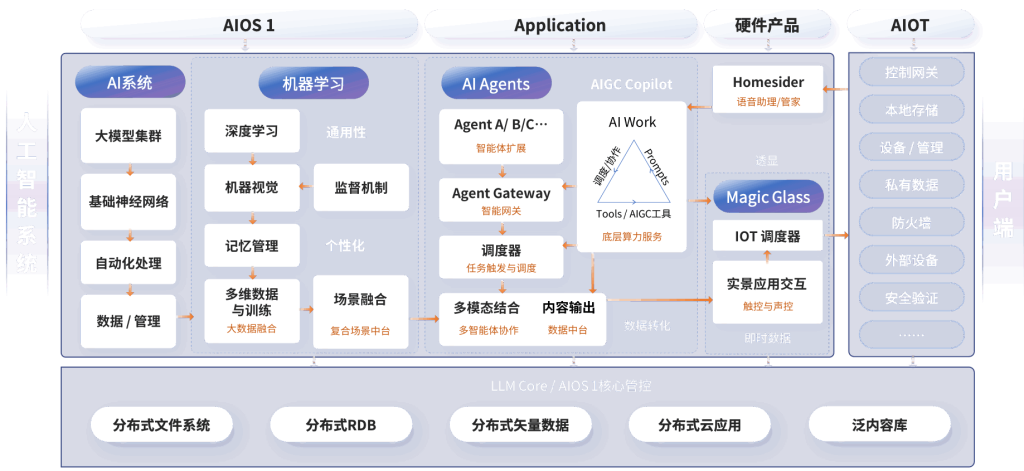. In today’s rapidly evolving technological landscape, autonomous systems have emerged as a game-changing force across various industries. These systems, powered by artificial intelligence (AI), are increasingly being utilized for strategic planning, enabling organizations to make informed decisions and optimize their operations. With platforms like Dataiku AI at the forefront of this transformation, the interplay between autonomous systems and strategic planning has profound implications for businesses aiming to stay competitive in an increasingly complex environment.
**Understanding Autonomous Systems**
. Autonomous systems refer to technologies that can operate independently, making decisions based on real-time data analysis and pre-defined parameters. These systems range from self-driving vehicles and drones to automated manufacturing robots. They utilize a combination of sensors, machine learning algorithms, and advanced analytics to perform tasks that traditionally required human intervention.
. The integration of AI into autonomous systems enhances their capability to analyze vast amounts of data and adapt to dynamic scenarios. For example, in manufacturing, autonomous robots equipped with AI can identify inefficiencies in production lines and suggest improvements. In logistics, autonomous delivery systems can optimize routes based on traffic conditions, reducing delivery times and operational costs.
**The Role of AI-Powered Strategic Planning**
. Strategic planning is a critical component of business success, determining how an organization allocates resources to achieve its goals. AI-powered strategic planning utilizes machine learning and data analytics to inform decision-making processes. This approach allows companies to move beyond traditional planning methods, which often rely on historical data and static models.
. By harnessing the power of AI, organizations can analyze market trends, customer behavior, and operational metrics in real-time. This dynamic capability enables businesses to adapt quickly to changing market conditions, identify new opportunities, and mitigate risks. For instance, during economic downturns, companies leveraging AI for strategic planning can forecast potential impacts on sales and adjust their strategies proactively.
**Dataiku AI: A Catalyst for Change**
. Dataiku AI is a leading platform that facilitates the integration of AI into business processes. Recognized for its user-friendly interface and robust analytical capabilities, Dataiku empowers organizations to leverage data-driven insights for strategic planning. The platform enables users to build, deploy, and manage their AI and machine learning models efficiently.
. With Dataiku, businesses can create predictive models that analyze consumer behavior, industry trends, and operational efficiencies. This capability is particularly valuable in sectors like finance, healthcare, and retail, where data-driven decisions can significantly impact outcomes. Additionally, Dataiku supports collaborative projects, allowing cross-functional teams to work together on AI initiatives, fostering innovation and accelerating implementation.
**Trends in Autonomous Systems and AI-Powered Strategic Planning**
. Several key trends are shaping the future of autonomous systems and AI-powered strategic planning:
1. **Increased Adoption of Automation**: Businesses are increasingly adopting automation technologies to enhance productivity and reduce operational costs. From supply chain management to customer service, autonomous systems are streamlining various processes.
2. **Enhanced Data Analytics**: The importance of data analytics cannot be overstated. Organizations are prioritizing data collection and analysis to gain insights that drive strategic decisions. AI-powered tools like Dataiku enable more sophisticated data analysis techniques, providing organizations with a competitive edge.
3. **Integration of AI and IoT**: The convergence of AI and the Internet of Things (IoT) is revolutionizing how businesses operate. Autonomous systems are being integrated with IoT devices to create smart ecosystems that enhance decision-making and operational efficiency.
4. **Emphasis on Sustainability**: As organizations grapple with environmental concerns, there is a growing emphasis on using autonomous systems to achieve sustainable practices. AI can help companies optimize energy usage, reduce waste, and minimize their carbon footprint through strategic planning.
**Industry Applications and Technical Insights**
. Numerous industries are benefiting from the integration of autonomous systems into their operations. In the transportation sector, for instance, autonomous vehicles are reducing traffic congestion and minimizing accidents. Fleet management solutions that use AI can analyze traffic patterns and optimize routing, saving time and fuel.
. In agriculture, autonomous drones are revolutionizing crop monitoring and management. These drones can collect data on soil conditions, monitor crop health, and even apply fertilizers and pesticides with precision. The integration of AI-powered strategic planning allows farmers to make data-driven decisions that enhance yield and reduce costs.
. The finance industry is also witnessing significant changes due to the adoption of autonomous systems. Algorithmic trading, powered by AI, enables financial institutions to execute trades at lightning speed, analyzing market conditions and sentiment in real time. Additionally, risk assessment models are being enhanced through AI, allowing for more accurate predictions and better-informed investment strategies.
**Challenges and Solutions**
. Despite the promising advancements, the widespread adoption of autonomous systems and AI-powered strategic planning is not without challenges. Organizations often face hurdles such as data privacy concerns, integration issues, and the need for skilled professionals to manage these systems effectively.
. To overcome these challenges, organizations must prioritize data governance and security. Implementing robust data privacy measures and adhering to regulatory standards will build trust and ensure compliance. Additionally, investing in training programs for employees will equip them with the necessary skills to navigate and leverage these technologies effectively.
. Collaboration between technology providers and organizations is also essential. By working together, businesses can tailor autonomous systems and AI solutions to fit their unique needs, promoting successful implementation and maximizing benefits.
**Conclusion: Embracing the Future of Autonomous Systems and AI**
. The integration of autonomous systems with AI-powered strategic planning represents a significant advancement in the way businesses operate. By leveraging technologies like Dataiku AI, organizations can enhance their decision-making processes, adapt to changing market dynamics, and drive operational efficiencies.
. As industries continue to evolve, the importance of embracing these technologies will only increase. Companies that invest in autonomous systems and AI-powered strategic planning will be better positioned to thrive in an increasingly competitive landscape.
. In summary, the convergence of autonomous systems and AI highlights a future where real-time data analysis and strategic planning create opportunities for innovation and growth across various sectors. Adopting these advanced technologies can pave the way for a more efficient, proactive, and sustainable approach to business.
**Sources:**
1. “Autonomous Systems: A Guide to the Future” – IEEE Spectrum.
2. “How AI is Changing Strategic Planning” – Harvard Business Review.
3. “Dataiku AI: Best Practices for Leveraging AI in Business” – Dataiku White Paper.
4. “The Evolution of Autonomous Vehicles” – McKinsey & Company.






















